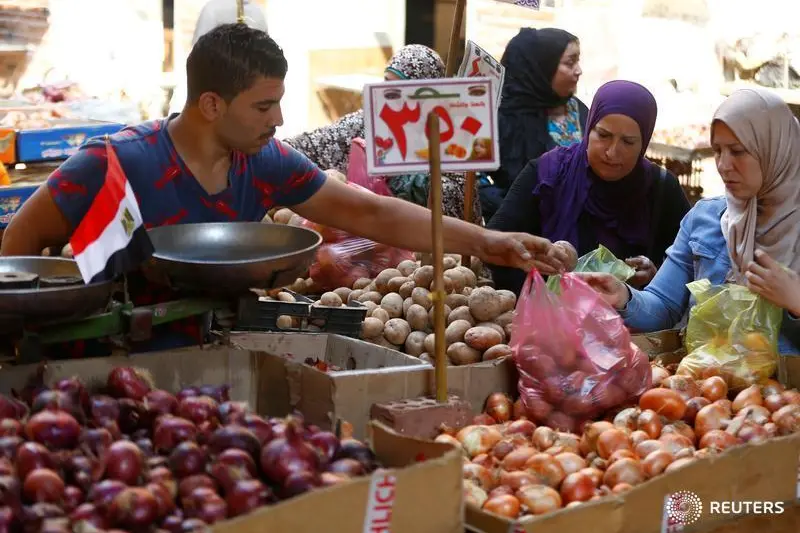PHOTO
Egypt’s Central Agency for Public Mobilization and Statistics announced that the nationwide annual inflation rate has risen to 10 percent in February compared to 4.9 percent during the same month last year.
This spike is driven mainly by a 20-percent increase in prices of food and beverages, namely vegetables, meat and poultry, according to the CAPMAS statement released to the local media on Thursday. The data also show that the Consumer Price Index (CPI) has risen from 119.1 pts in January to 121.4 pts in February, marking a two-percent increase.
According to a Capital Economics analysis of the data, the headline rate, which covers urban consumer only, has reached a near three-year high of 8.8 percent y-o-y in February. This rate is bound to follow an upward an upward curve over the coming months due to soaring global food and energy prices and the government’s intention to reduce bread subsidies, according to the London-based economic research consultancy firm.
Last month, Egypt’s Prime Minister Mostafa Madbouly said that his cabinet would increase the price of subsidized bread for the first time in 33 years. He added that the government needs to reduce the financial gap between the actual cost of a loaf of bread (65 piasters) and its subsidized price (5 piasters).
A revision of the subsidy scheme, which benefits around 72 million Egyptians, comes against the backdrop of the Russian-Ukrainian war. The ongoing conflict is expected to disrupt the wheat supply chain to Egypt, which relies on the two warring parties for 60 percent of its cereal imports.
As Egypt is also a net importer of energy, consumers are also bracing for another increase of fuel prices, following the government’s last month decision to raise the price of the 92-octane gasoline by LE 0.25 per liter bringing it to LE 8.5.
“Rising inflation, combined with Fed policy tightening and the pound likely to come under pressure, we think that policymakers at the Central Bank of Egypt will now opt to hike interest rates by 50bp, to 8.75%,” read the latest briefing by Capital Economics.
“We have penciled in a further 200bp of increases by the end of 2023, taking the overnight deposit rate to 10.75%,” continued the briefing.
Last month, CBE left unchanged the overnight deposit rate at 8.25 percent and the lending rate at 9.25 percent for the nineth consecutive time during its monthly meeting. The CBE justified its decision by saying those rates were consistent with an inflation target of 7 percent (±2 percentage points) in 2022 Q4 and with price stability over the medium term.
(Reporting by Noha El Hennawy; editing by Seban Scaria seban.scaria@lseg.com)





















